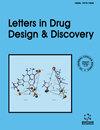灵芝和酸枣仁对手术后粘连带形成的治疗潜力
IF 1.6
4区 医学
Q4 CHEMISTRY, MEDICINAL
引用次数: 0
摘要
背景:腹腔内粘连是腹盆腔手术后常见的并发症。腹腔粘连的形成可导致不孕、慢性盆腔疼痛和肠梗阻。灵芝(Ganoderma lucidum Karst)和酸枣仁(Ziziphus jujuba Mill)的抗炎和抗氧化活性已有报道。在此,我们探讨了灵芝和酸枣仁对手术后粘连带形成的治疗潜力。实验研究遵循 NC3Rs ARRIVE 指南。实验方法给不同组的雄性白化 Wistar 大鼠灌胃 G. lucidum 粉末(800 毫克/千克)和 Z. jujuba 粉末(400 毫克/千克)。治疗十天后,测定腹膜粘连的宏观证据和粘连带评分。此外,还使用组织病理学、酶联免疫吸附试验和实时聚合酶链反应方法评估了绿豆芽和酸枣仁的抗炎和抗纤维化作用。此外,还评估了一些氧化应激参数的变化。结果绿藻和酸枣仁能显著减少粘连带,并通过调节 TNF-α、IL-6、IL-1β 和 TGF-β,减少炎性细胞向受损组织的浸润以及炎性细胞因子 mRNA 和蛋白的表达。此外,这两种制剂还通过减少胶原沉积和降低腹膜粘连组织的凋亡标志物 Col1A1 的表达来抑制纤维化粘连带的形成。鹿角胶和茨实能改善大鼠粘连组织中的一些抗氧化因子。液相色谱-质谱(LC-MS)分析结果表明,灵芝和酸枣仁含有多种具有抗氧化活性的成分,包括灵芝酸、灵芝烯酸、槲皮素、亚油酸、苹果酸和苯甲酸。结论研究结果表明,鹿角胶和酸枣仁具有抗炎和抗纤维化的特性,在减少腹膜粘连方面具有治疗潜力,这表明它们有望成为预防手术后粘连的一种新的治疗方法。本文章由计算机程序翻译,如有差异,请以英文原文为准。
The Therapeutic Potential of Ganoderma lucidum Karst and Ziziphus jujuba Mill for Postsurgical Adhesion Band Formation
Background: Intra-abdominal adhesions are a commonly occurring postoperative complication following abdominopelvic surgery. Peritoneal adhesion formation can lead to infertility, chronic pelvic pain, and intestinal obstruction. The anti-inflammatory and anti-oxidant activities of Ganoderma lucidum Karst (G. lucidum) and Ziziphus jujuba Mill (Z. jujuba) have been reported. Here, we have explored the therapeutic potential of Ganoderma lucidum Karst (G. lucidum) and Z. jujuba against postsurgical adhesion band formation. The NC3Rs ARRIVE guidelines were followed during experimental studies. Methods: G. lucidum powder (800 mg/kg) and Z. jujuba powder (400 mg/kg) were administered using oral gavage to different groups of male albino Wistar rats. After ten days of treatment, macroscopic evidence for peritoneal adhesions and adhesion band score were determined. Furthermore, the anti-inflammatory and antifibrosis effects of G. lucidum and Z. jujuba were assessed using histopathology, ELISA, and real-time polymerase chain reaction methods. Also, alterations in some oxidative stress parameters were evaluated. Results: G. lucidum and Z. jujuba significantly decreased adhesion bands and were associated with a reduction in inflammatory cell infiltration into damaged tissues and the mRNA and protein expression of inflammatory cytokines via modulation of TNF-α, IL-6, IL-1β, and TGF-β. Moreover, both agents inhibited fibrotic adhesion band formation by decreasing collagen deposition and reducing profibrotic marker expression, Col1A1, at the peritoneum adhesion tissues. G. lucidum and Z. jujuba improved some antioxidant factors in rats’ adhesion tissues. The result of LC-MS showed that Ganoderma lucidum Karst and Ziziphus jujuba Mill consist of components with antioxidant activity, including ganoderic acid, lucidenic acid, quercetin, linoleic acid, malic acid, and benzoic acid. Conclusion: The results have demonstrated the therapeutic potential of G. lucidum and Z. jujuba in reducing peritoneal adhesion through anti-inflammatory and anti-fibrotic properties, indicating their promising value as a new therapeutic approach in preventing postsurgical adhesion.
求助全文
通过发布文献求助,成功后即可免费获取论文全文。
去求助
来源期刊
CiteScore
1.80
自引率
10.00%
发文量
245
审稿时长
3 months
期刊介绍:
Aims & Scope
Letters in Drug Design & Discovery publishes letters, mini-reviews, highlights and guest edited thematic issues in all areas of rational drug design and discovery including medicinal chemistry, in-silico drug design, combinatorial chemistry, high-throughput screening, drug targets, and structure-activity relationships. The emphasis is on publishing quality papers very rapidly by taking full advantage of latest Internet technology for both submission and review of manuscripts. The online journal is an essential reading to all pharmaceutical scientists involved in research in drug design and discovery.

 求助内容:
求助内容: 应助结果提醒方式:
应助结果提醒方式:


